I have a table where I save plays for players over a specific game on it.
the game has different levels.
the player can play the same level multiple times.
I need to query that table to count the number of levels that a specific player played today for the first time over a specific date.
for example, in my picture, I need to know new levels for a player that has ID = 267 over the date "2022-09-01".
the query result should be 1 level as the player already played levels 1 and 2 before that specific date.
+----+-----------+---------+----------+-------+---------------------+---------------------+
| id | player_id | game_id | level_id | score | created_at | updated_at |
+----+-----------+---------+----------+-------+---------------------+---------------------+
| 1 | 267 | 11 | 1 | 350 | 2022-08-28 00:28:52 | 2022-08-28 00:28:52 |
| 2 | 267 | 11 | 2 | 150 | 2022-08-28 00:32:52 | 2022-08-28 00:32:52 |
| 3 | 267 | 11 | 1 | 175 | 2022-09-01 00:28:52 | 2022-09-01 00:28:52 |
| 4 | 267 | 11 | 2 | 125 | 2022-09-01 00:32:52 | 2022-09-01 00:32:52 |
| 5 | 267 | 11 | 3 | 115 | 2022-09-01 00:35:52 | 2022-09-01 00:35:52 |
+----+-----------+---------+----------+-------+---------------------+---------------------+
